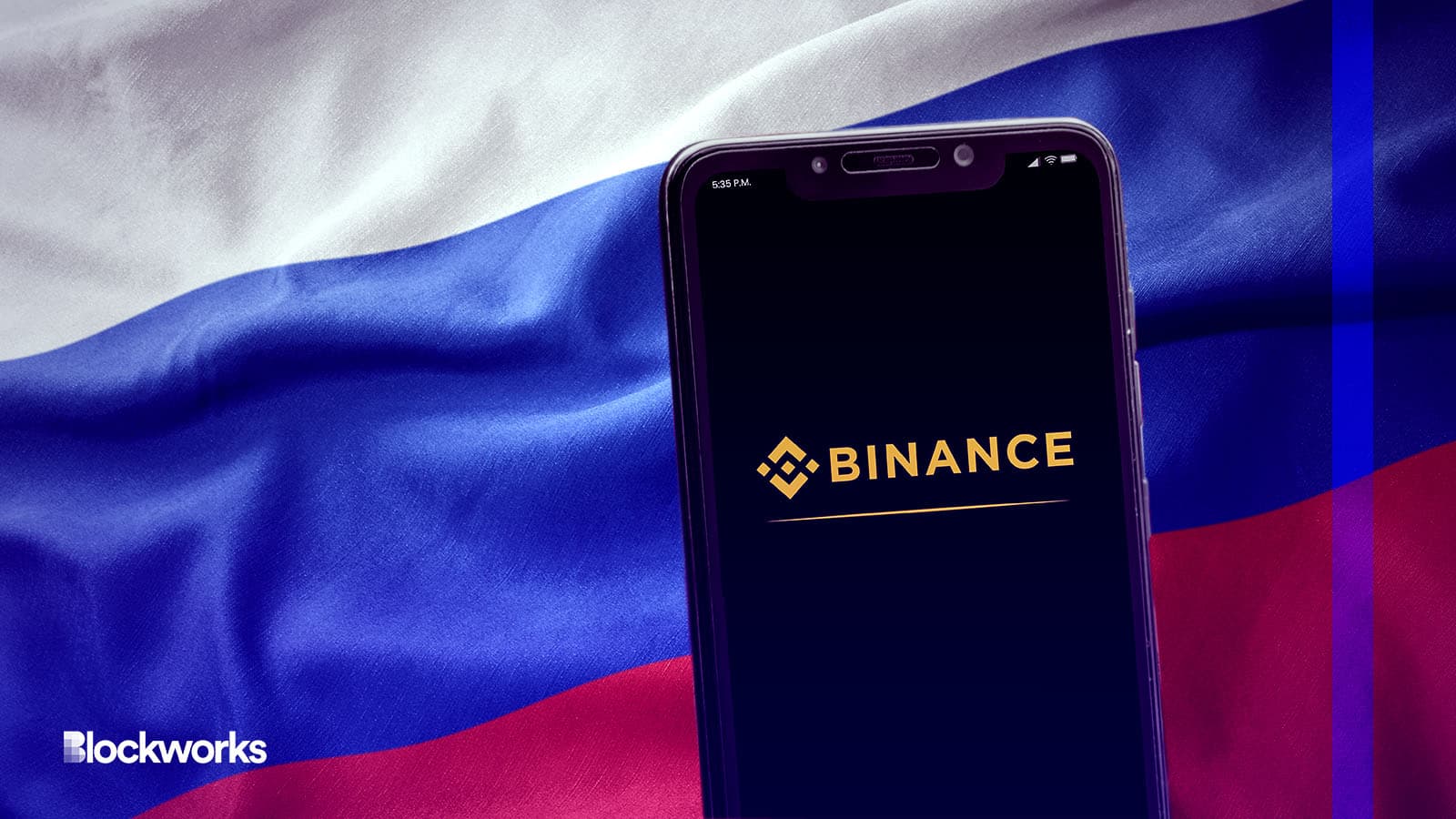Binance fully exits Russia after sale deal with startup CommEX
Binance said it won’t disclose the financial terms of the deal, but that it doesn’t include any ongoing revenue share from the sale

JOCA_PH/esfera/Shutterstock, modified by Blockworks
Binance has opted to completely withdraw from Russia by selling its entire local business there.
The crypto company has struck a sales deal with Russian-based exchange CommEX for an undisclosed sum, according to an announcement on Wednesday.
CommEX appears to have launched just this week, according to its Telegram channel. On its website, the exchange has provided a tutorial guiding how Binance users can connect their accounts to the newly-launched platform.
The off-boarding process is expected to take about one year, and Binance said the assets of existing Russian users will be protected during this time.
Binance users will receive requests to transfer their assets to CommEX.
A portion of newly registered Russian users who have completed KYC (Know Your Customer) procedures will be redirected to CommEX right away.
Binance said that staying in Russia did not align with the company’s latest compliance strategy.
“Our highest priority is protecting our users and maintaining trust in our platform,” a spokesperson told Blockworks. “We have worked tirelessly to invest in the teams and systems that ensure user protection.”
The spokesperson declined to comment on why CommEX was chosen as the partner for the deal.
Binance said it would not have an ongoing revenue-sharing arrangement or the option to repurchase shares in the business following the sale.
Navigating compliance and leadership exits
Discussion about Binance considering an exit from Russia surfaced last month, raising questions about its presence in the country.
This decision by the crypto exchange comes in the wake of allegations that it was involved in assisting nationals to transfer money abroad earlier this year, prompting Binance to take measures to align itself with international sanctions.
Furthermore, Binance recently witnessed the departure of two key executives, Gleb Kostarev and Vladimir Smerkis, who had been actively involved in the Russian market.
In 2022, Binance blocked accounts linked to Russian officials’ family members.
But this year, restrictions seemed to ease as Binance allowed Russian users to use local credit and debit cards for crypto purchases, except in USD.
More recently, Binance tightened its restrictions on peer-to-peer trading services for Russian users.






